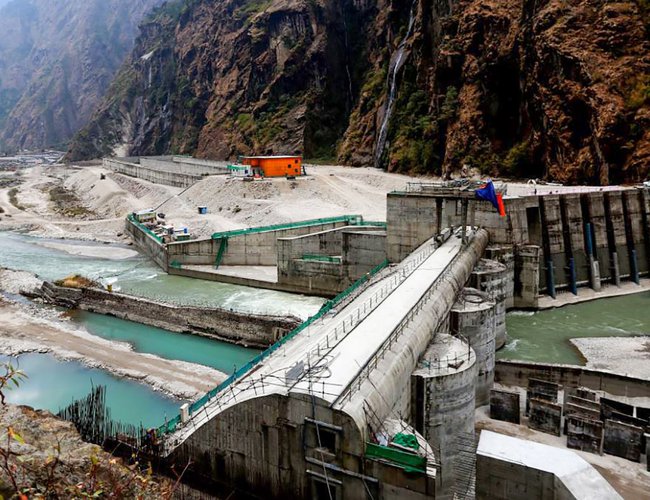
The delay in implementation of Public Private Partnership and Investment Act (PPPIA) 2019 has surprise Public-private investors, donor agencies. Designing PPP units is to solve unclear understanding problems face during the implementation of the PPP programs to achieve sustainable development goals. It has been one year of enacted PPPIA 2019, till today IBN member hasn’t established PPP Unit and Investment Unit.
Department of Industry’s (DOI) a regulator established for the promote of local and foreign investment. This year DOI has proposed working capital of NRS 19,116.16 with employment of 22,961. Project are still pending as Covid-19 has created a new uncertainty.This triggered uncertainties in its working capital. To protect project from slipping, Nepal Rastra Bank (NRB) has established one stop Service Centre under Monetary Policy 2019/2020 in order to encourage foreign investment. Monitory policy has also estimated for NRS 30 million investment limit for selection of project by infrastructure development bank. This doesn’t end here; Private sector are still facing new challenges in capital investment as in:
i) Capital investment: Bank and Financial institutions are afraid to invest.
ii) Utility are under pressure financially. Trunk line issue between Nepal Electricity Authority (NEA) and Industries came across, Example, Council of Ministry has sent letter to Ministry of Energy, Water and Resource and Irrigation where Nepal Electricity Regulatory agency has crucial role.
iii) Certainty and risk level have been increasing in Public Private Partnership (PPP). Agreement sign between Private sector promoters are forced to raise 30% of their own capital for the financial management of the project. Example Aarti Hydropower Company Ltd.
On other hand there’s still old challenges for infrastructure investment development as bureaucratic delays, policy uncertainty, lack of transparency and insufficient institutional capacity, high transactions costs, bankable projects, multiplicity of regulations, permits and license. These issues make delay in implementation of any project in time.
To stop above challenges for more than six billion rupees project, National Planning Commission (NPC), Three Year Interim Plan 2007/08-2009/10 aim to established an Investment Promotion Board with wider participation of the Private sector. Investment Board Nepal 2010 (IBN) was enacted for mobilize the investment of public private partnership, cooperative and nationals as well as foreign private sector for economic development. Act failed to implement the Public Private Partnership (PPP) program on identifying procurement, tendering, Public-Private Partnership finance, and identify risk allocation issues.Thus, the Government enacted the New Public Private Partnership and Investment Act (PPPIA) 2019, With national treatment and non-discrimination of foreign investors, One Stop Shop (OSS) and PPP Units.
The delay in implementation of Public Private Partnership and Investment Act (PPPIA) 2019 has surprise Public-private investors, donor agencies. Designing PPP units is to solve unclear understanding problems face during the implementation of the PPP programs to achieve sustainable development goals. It has been one year of enacted PPPIA 2019, till today IBN member hasn’t established PPP Unit and Investment Unit. On other hand Monitoring and Facilitation Committee (MFC), Section 9(1) (i) of PPPIA 2019 (Check Nepali Version) clearly mentions selection of a member from Section 5(2)L ie. Formation of Board. But there is no Section L in this section. In this senior there might be difficult for MFC to collect 51% attendance or making procedure for MFC meeting.
Uganda established The Public-Private Partnership Unit since 2015. Section 11 (2) (g) of the PPP Act 2015 provides the Unit to collate and disseminate information on PPP projects including data on the contingent liabilities of the government in relation to a project. Unit lead role as the center of knowledge and performance of the PPP Project. It's responsible for the identification, development, procurement implement, and monitoring of the project. A preliminary economic cost-benefit analysis is conducted. Within 21 days PPP Units approve the project. Investment has reached US$ 1.9 Billion until 2017. Advance Project such as Kampala- Jinja Expressway project procurement process has already commenced. Section 14 of PPPIA 2019 provides PPP Units to carry out a feasibility study of the project. It has a duty to conduct studies and research on the practices and experience of PPP at international levels. Along with assist investors in the preparation and implementation of the project for implementation of the PPP Program. ThePPPIA doesn’t talk about the time frame of approval of the project and preliminary economic cost-benefit analysis. In international practices, Balancing the role of project support and approval need a high level of engagement between the unit and the project team. High quality and credible staff lead by who commands across the government and enjoy strong political support at senior levels.
For the success of the PPP Unit, the Unit role is to understand how government processes and administration work. Along with how the market works based on the people with strong commercial experience. PPP Unit hold the requisite budgets for project procurement and long-term support. It attracts and retains adequate resources for government success. For this, there must be a high level of political support/ commitment and coordination between government agencies. It also helps the government not to slip projects. Beforehand, Infrastructure projects are slip-up due to politics, planning, and execution, egos, vested interest, currency exchange rate, or design. PPP Program will increase the chances for success with PPP Unit and Investment Unit, without their support PPIA might fail its objective. Research done by Anton A. Eberhard on sub-Saharan Africa infrastructure project clear finds Policy framework and regulation, linking planning procurement and contracting and supply security is one of the key factors for successful project development.
The government also needs to prepare the ground for the private sector participation by developing an appropriate legal, institutional, and contractual framework by placing an appropriate pricing policy. The role of the Government is to help the agency to follow the established rules and regulations. This helps in failure of quality control, policy formulation and coordination, Technical assistance, and Marketing. It should also ensure the project fall under the PPP policy framework. Nonetheless, OECD Policy has estimate that on average, even a modest 1 per cent increase in the tax rate results in a 3.7 per cent decrease in Foreign Direct Investment (FDI) after adjusting for variations based on the country and type of industry, Due to COVID government has reduce tax, Hopeit might increase FDI in Nepal and add more challenge to IBN for implementation of PPPIA 2019.
Currently IBN, Project Bank has PPP Project such as the Kathmandu Valley Metro Project, Kathmandu-Pokhara-Lumbini Railways, Interstate & Intrastate Public Transportation Project in Province Sudurpaschim Province, Integrated Agriculture infrastructure project, Bus Rapid Transit (BRT) on Ring road of Kathmandu. The task of the board to take these PPP projects from the Procurement Stage to the Implement stage. It might be difficult during the COVID-19 period. It’s not a new scenario, even during the Great Depression, the world's largest hydropower project was constructed successfully including Hoover Damin 1936, the Bonne Ville Damin 1938 and the Grand Coulee Dam 1941 Thus success of project is possible with implementation.
On other hand, Government has allotted budget (FY 2020/21) to study and design, 762-Megawatt Tamor reservoir hydropower project, Madi multipurpose hydropower project, Four smart cities in Kathmandu under PPP Program. In future if above projectsneed final assistance. How the Govt shall assist? The government alone cannot invest a huge amount in infrastructure development through collecting taxes. As per NPC, 15th-year plan country needs20 billion 25 trillion to achieve sustainable development goal till 2030.With Productivity and employment oriented, it needs 2 Billion 17 trillion Nepalese Rupees from Public-Private partnership investment. It’s not duty of NPC to measure the effectiveness of implementation of policy and plan made by Government.
For the fulfillment of the funding gap for infrastructure project a new conceptValidity Gap funding (VGF), has keep in PPPIA.It’s a major theme in international finance in infrastructure development. Government select and transfer estimated the gap amount for the project. Transfer required residualfund from VGF company to an institution or the private party to cover all the variance between true of PPP Project with expected revenue return. Concept has been incorporated in Section 43 of PPPIA 2019, IBN has power for operation and management of the Fund. It shall send recommendation to GON for approval of the fund. Question might arise in the future, who shall take construction risk, interface risk and corrupt risk, Investment Board or Government of Nepal or the Private sector who? Does the grant provided grant the desired result avoiding subsidizing? These questions need to be answer by its VGF guidelines. On other hand GON must estimate VGF cost. India Planning Commission has clearly mentation PPP Project Cost for VGF in its Five-year Plan.
In addition, PPPIA 2019, Switch tradition project initiation method into new system of procurement process i.e. "Swiss Challenge Method"(SCM). Section 28 (4) of PPPIA 2019, After evaluation of unsolicited proposal received from the private party if find profitable with implementation in PPP Program, concerned Administrative Departmentmay invite for competition through SCM.Implementation through SCM is easier and faster. But Who identify the project, Federal or province government? Does the selection process and guideline maintain transparency, fairness, governance and competition?
How it will provide guarantee to the private sector or government, if the unsolicited bidder withdraws its offer. How agency will evaluate the monetary value of the unsolicited proposal, when contract or the project is not given. What is the time frame for selection the project?Hope these issues are explained by Swiss challenge guideline in transparency way.
For the effective result of newly enacted PPPIA 2019 and to achieve sustainable development agendatill 2030, Implementation of PPPIA 2019, Without losing further time IBN along with Government must establish the Units and OSS. It’s might be a challenging for a newly appointed CEO to establish, without any government strong support. Thus,Government of Nepal, its institutional bodies, and with strong political commitment diligently needed for effective implementation of act and regulation provision. Effectiveness of the act can only be calculated after implementation.
Dahal is an Advocate in Master by Research in Energy and Infrastructure Law. He can be reached at anupdahal3@gmail.com

















